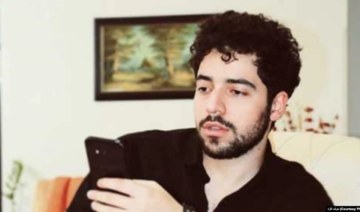NICOSIA: The breakaway Turkish Cypriot state in north Cyprus hopes to end its international isolation, its leader Ersin Tatar told AFP in an interview, as the Mediterranean island marks fives decades of division.
“Every day, we are working for recognition,” said the president of the Turkish Republic of Northern Cyprus (TRNC), which Turkish Cypriot leaders declared in 1983 but which is recognized only by Ankara.
“Turkish Cypriots have been (put) under a lot of disadvantages — embargoes, isolation,” Tatar said in the interview conducted on Thursday.
This month marks the 50th anniversary of Turkiye’s invasion of the north, five days after a coup orchestrated by the junta then in power in Athens sought to unite the whole island with Greece.
The invasion’s aftermath effectively divided the island along ethnic lines, with some 170,000 Greek Cypriots fleeing the north to be replaced by some 40,000 Turkish Cypriots displaced from the government-held south.
But international recognition has always eluded the Turkish Cypriots, with knock-on effects on the northern economy.
All flights to northern Cyprus have to make at least a stopover in Turkiye, hampering the development of large-scale tourism.
The rejection of a UN peace plan by Greek Cypriot voters in a 2004 referendum meant Cyprus entered the European Union that year still a divided island, with Turkish Cypriots denied the full benefits of membership.
“I would very much hope to see a resolution from the United Nations Security Council saying that we do recognize the Turkish Republic of North Cyprus,” Tatar said.
“Greek Cypriots are obviously having a bigger part of the cake. Tourism is prospering, their economy is prospering,” he added.
UN-backed efforts to reunify the island as a bizonal, bicommunal federation have been at a standstill since the last round of talks collapsed in 2017.
The Turkish Cypriot leadership says that with the UN-backed reunification talks dead, a two-state solution is the only forward.
Greek Cypriot leaders say they remain committed to the UN-backed process.
The United Nations, whose peacekeepers patrol a buffer zone behind the former front line between the two sides, is pressing for talks to resume between the leaders of the two communities.
“All I want is concerted efforts to find a practical, fair, just and sustainable settlement. But on an equal basis, a sovereign equal basis,” said Tatar.
For Tatar, “1974 was a turning point for Turkish Cypriots, a new hope,” said the leader, who was a 13-year-old pupil at the English School in Nicosia at the time and on holiday in London when he heard the news.
Citing violence and discrimination against the minority community in the decade leading up to the invasion, he insisted Turkish troops landed to “protect the Turkish Cypriots.”
A controversial treaty between Britain, Greece and Turkiye that accompanied the island’s independence in 1960 gave the three powers the right to intervene to guarantee the island’s constitution.
The treaty also outlawed partition and the union of any part of the island with Greece or Turkiye.
“This is why we call it Turkish intervention as a result of the right given to Turkiye by the 1960 agreement,” Tatar said.
He said the Turkish troop contingent in northern Cyprus — around 40,000 soldiers, according to the United Nations — was a “deterrent force” that had “ensured that we had peace on the island.”
Despite the many challenges, “what we have achieved is basically to develop our state from nothing to a consolidated state with all the functions and faculties that you would have in any modern state,” Tatar said.

























